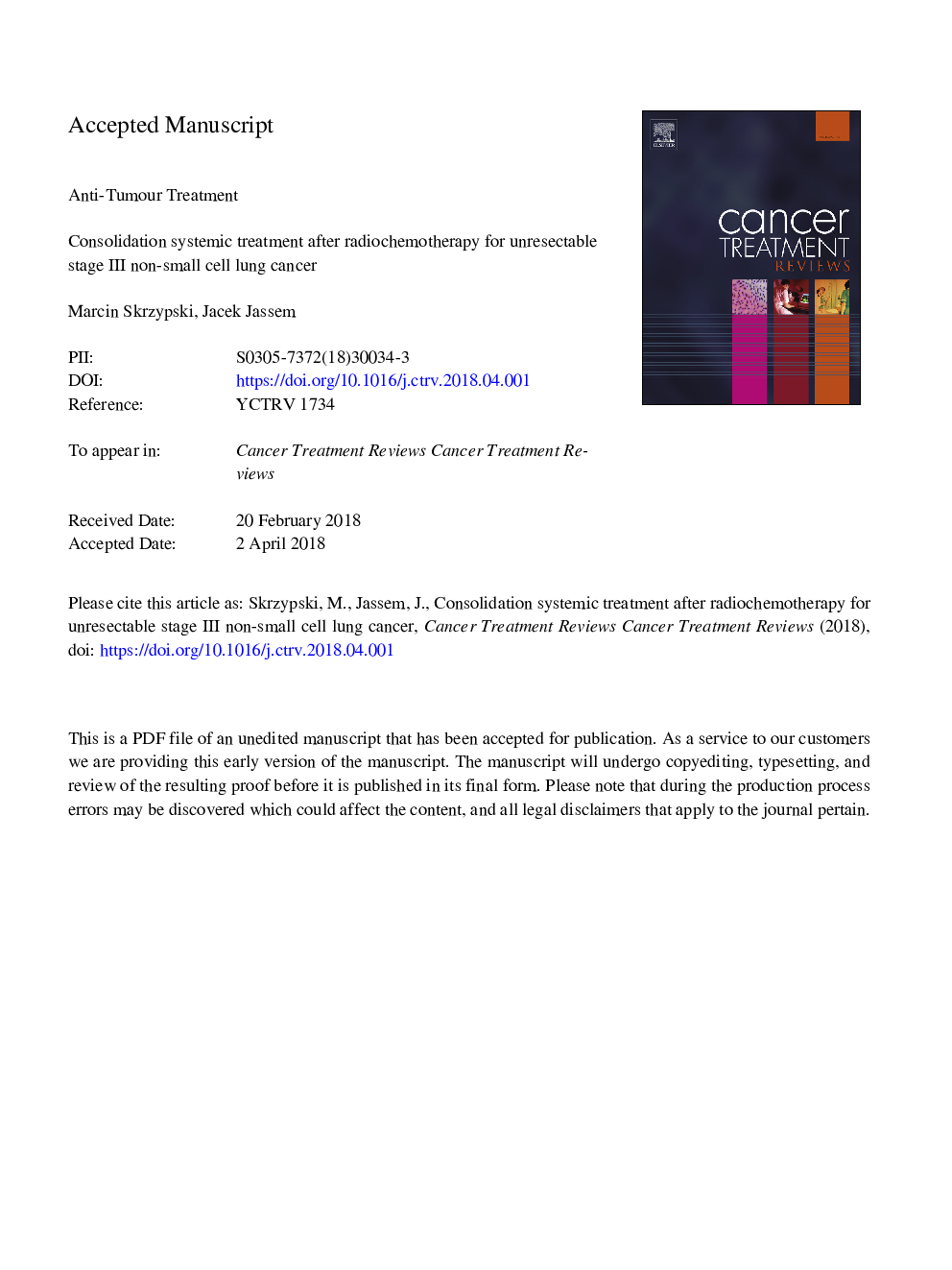| Article ID | Journal | Published Year | Pages | File Type |
|---|---|---|---|---|
| 8785869 | Cancer Treatment Reviews | 2018 | 24 Pages |
Abstract
The majority of stage III NSCLC patients managed with a combination of radiotherapy and chemotherapy will develop a locoregional or distant relapse. Concomitant radiochemotherapy allows for improved local control but has no impact on extrathoracic recurrences. To ameliorate this inefficiency the concept of consolidation treatment has been put forward, whereby systemically active doses of chemotherapy, targeted therapy or immune therapy are administered after completion of radiochemotherapy. Randomized trials failed to provide support for consolidation chemotherapy or anti-EGFR therapies. Recently durvalumab, an anti-PD-L1 checkpoint inhibitor, administered as consolidation treatment, was shown to substantially improve progression-free survival. This article critically reviews major studies addressing the role of consolidation systemic therapies following definitive concurrent radiochemotherapy and discusses prospects for future research.
Keywords
Related Topics
Health Sciences
Medicine and Dentistry
Oncology
Authors
Marcin Skrzypski, Jacek Jassem,
